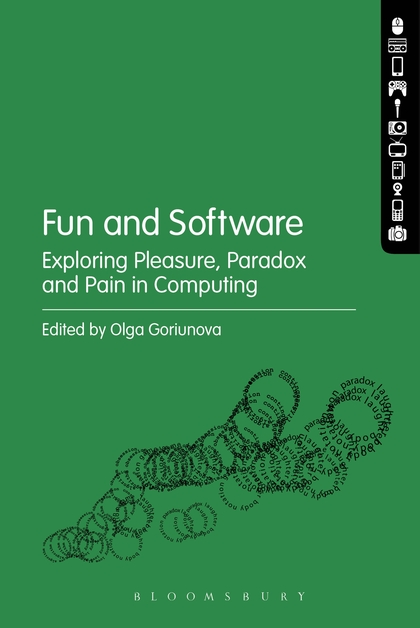Friedrich Kittler: The Truth of the Technological World: Essays on the Genealogy of Presence (2013–) [DE, EN]
Filed under book | Tags: · antiquity, computing, cybernetics, film, information theory, literary theory, literature, media, media technology, media theory, noise, philosophy, psychoanalysis, software, sound recording, technology, telegraphy, theory, typewriter, war, writing

“Few German scholars in the past 50 years have had such a lasting impact on the cultural situation of our time, including its academic institutions, as Friedrich Kittler. It is in large part due to his writings that the radio, the gramophone, and the computer are not just objects of cultural fascination, but also of philosophical reflection.
This volume contains a collection of essays written by Kittler over the course of 40 years which serve as a testament to the enormous breadth, intensity, and the singular creativity of his thought.”
German edition
Edited and with an Afterword by Hans Ulrich Gumbrecht
Publisher Suhrkamp, Berlin, 2013
ISBN 9783518732984
432 pages
English edition
Translated by Erik Butler
Publisher Stanford University Press, 2014
ISBN 9780804792622
400 pages
Reviews: Oliver Jahraus (zfm, 2014), Stavros Arabatzis (Weimarer Beiträge, 2014).
Publisher (DE)
Publisher (EN)
Worldcat (DE)
Worldcat (EN)
Die Wahrheit der technischen Welt (German, EPUB, updated on 2019-11-2)
The Truth of the Technological World (English, updated on 2019-11-2)
Olga Goriunova (ed.): Fun and Software: Exploring Pleasure, Paradox and Pain in Computing (2014)
Filed under book | Tags: · abstraction, aesthetics, affect, algorithm, art, body, code, computing, game, humour, labour, logic, media, media theory, politics, programming, software, software art, software studies, theory, time

“Fun and Software offers the untold story of fun as constitutive of the culture and aesthetics of computing. Fun in computing is a mode of thinking, making and experiencing. It invokes and convolutes the question of rationalism and logical reason, addresses the sensibilities and experience of computation and attests to its creative drives. By exploring topics as diverse as the pleasure and pain of the programmer, geek wit, affects of play and coding as a bodily pursuit of the unique in recursive structures, Fun and Software helps construct a different point of entry to the understanding of software as culture. Fun is a form of production that touches on the foundations of formal logic and precise notation as well as rhetoric, exhibiting connections between computing and paradox, politics and aesthetics. From the formation of the discipline of programming as an outgrowth of pure mathematics to its manifestation in contemporary and contradictory forms such as gaming, data analysis and art, fun is a powerful force that continues to shape our life with software as it becomes the key mechanism of contemporary society.”
Texts by Andrew Goffey, Simon Yuill, Matthew Fuller, Luciana Parisi and M. Beatrice Fazi, Adrian Mackenzie, Michael Murtaugh, Geoff Cox and Alex McLean, Wendy Hui Kyong Chun and Andrew Lison, Christian Ulrik Andersen, Brigitte Kaltenbacher, Annet Dekker, and Olga Goriunova.
Publisher Bloomsbury, New York and London, 2014
New Media and Technology series
ISBN 1623560942, 9781623560942
285 pages
Software studies page on Monoskop
Comment (0)International Journal of Communication, 8: Special Section: Media, Hot and Cold (2014)
Filed under journal | Tags: · climate, media, media studies, mediation, meteorology, temperature, weather
“The 21st century will be the century of temperature. As global temperatures rise, polar ice melts, and drought becomes a permanent way of life, temperature has become the single greatest challenge to human life on the planet.
Temperature is also a media problem in many ways: from the heat generated by new media—whether in our hands or in giant server farms; to the technologies used to measure, represent, and understand temperature; to the contribution of new media systems themselves to the problem of global warming. But this is not a new phenomenon. For centuries, media and mediation have been at the center of experiments in and beliefs about temperature and its relation to culture, gender, language, and life. In this special section, we take the 50th anniversary of Marshall McLuhan’s Understanding Media literally to ask “What are hot and cold media?””
Contributors: Alice Christensen, Wolfgang Ernst, Brenton J. Malin, Jessica Mudry, Dylan Mulvin, Lisa Parks, Rafico Ruiz, Nicole Starosielski, Jonathan Sterne, Marita Sturken.
Special section of the IJoC 8
Edited by Dylan Mulvin and Jonathan Sterne
Creative Commons BY-NC-ND License
ISSN 1932-8036
44 pages
PDF (single file)
PDFs (separate articles)

